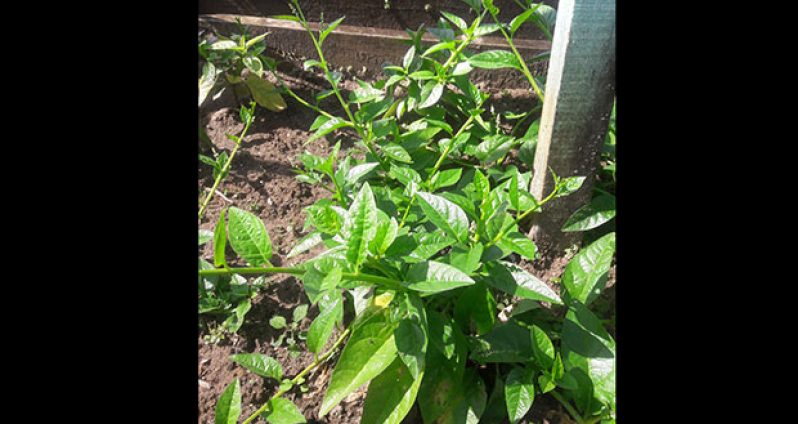Even with the incorporation of modern technology, such as hydroponics in farming, soil is likely to remain a key element in crop production for generations to come. It is a natural resource, which is made of minerals, water, air, and organic matter that helps plant growth.

The National Agricultural Research and Extension Institute (NAREI) has been advising vegetable farmers to obtain information about the soil before cultivation. This is one of the many services offered by NAREI. Soil testing reveals the soil type, whether liming is required as well as the types and amounts of fertilizers to apply.
It is recommended for farmers to conduct soil testing between crops. Soil tests do not actually measure the amounts of nutrients in the soil. Rather, they estimate the ability of the soil to supply nutrients and provide the effectiveness of crop response to fertilization.
In Guyana, vegetables are cultivated on sandy, sandy loam, clay and pegassy soil. For instance, in some areas of Region 10 the soils are mainly sandy or sandy loams, while coastal Regions have clay and pegassy soils. The soils in Guyana are generally acidic. A lot of crops including tomato and pumpkin can grow in soils with acidity between 5.5 and 6.5.
Acidic soils have a pH below 7. However, the ideal pH for vegetables cultivation is around 7. This means that liming will be a requirement for successful vegetable production (Liming is a soil additive made from crushed limestone or chalk). Once liming is done correctly, this practice would not be required in three to five years’ time. Other practices such as crop rotation and mulching would help in maintaining soil pH at the desired levels.
For accurate results, the soil sample should be obtained from six inches below the surface. It is recommended that farmers should conduct soil testing six weeks prior to cultivation. As such, if the soil is acidic there is adequate time for limestone to be applied to the soil to raise the pH.
Limestone is rich in Calcium that neutralizes the acid in soil. Liming materials come in different formulations such as low grade rock phosphate that is usually available on sugar estates. Farmers interested in purchasing limestone could contact NAREI.
It is important that caution is taken when applying limestone to the soil. Too much limestone added to the soil could raise the pH above 7. This could result in the leaching of nutrients from the soil. When done correctly, limestone has been proven to allow high yields.
Farmers can also add fertilizers or manure to improve soil nutrients. The soil test will provide information on the types and quantities of fertilizers or manures to apply. Different crops have different requirements. It is always advisable to apply manures (animal litter, composted materials, etc.) to satisfy the nutrient demands of crops on sandy soils.
(Text and photos contributed by NAREI)



.jpg)








